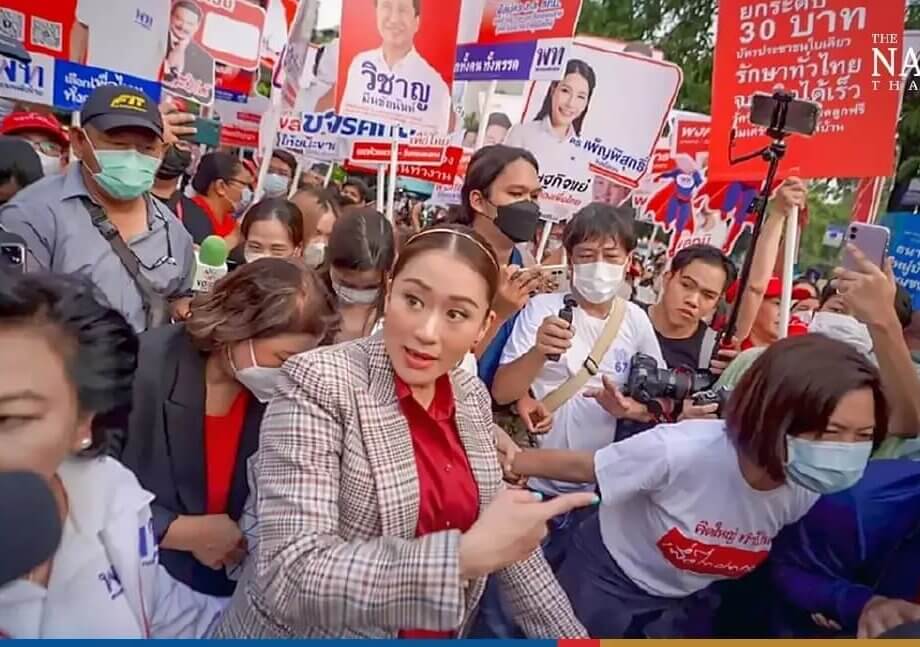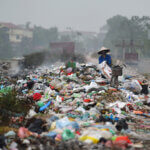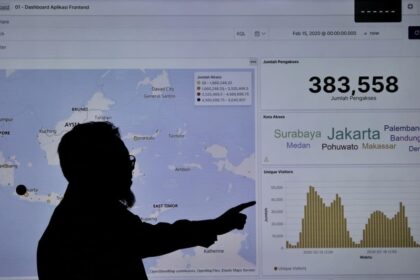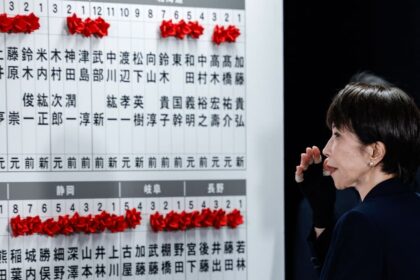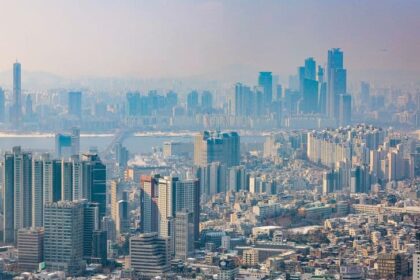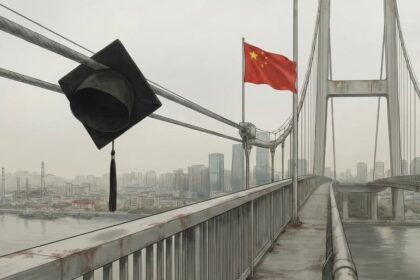Thousands Rally in Bangkok: The Largest Anti-Government Protest Since 2023
On June 28, 2025, Bangkok witnessed its largest anti-government protest since the Pheu Thai Party came to power in 2023. Thousands of demonstrators, braving heavy monsoon rains, gathered around the iconic Victory Monument, demanding the resignation of Prime Minister Paetongtarn Shinawatra. The protest, organized by the nationalist coalition United Force of the Land, marks a critical moment in Thailand’s ongoing political turbulence, with implications for the country’s fragile democracy, economy, and regional relations.
- Thousands Rally in Bangkok: The Largest Anti-Government Protest Since 2023
- What Sparked the Protests? The Border Dispute and the Leaked Call
- Who Are the Protesters? Nationalist Movements and Political Factions
- Political Fallout: Coalition Fractures and Judicial Threats
- Historical Context: The Shinawatra Family and Thailand’s Political Divide
- Regional Tensions: The Cambodia Factor
- Economic and Social Impact: A Nation on Edge
- What Happens Next? Scenarios and Implications
- In Summary
The immediate trigger for the unrest was a leaked phone call between Paetongtarn and former Cambodian Prime Minister Hun Sen, which, combined with a deadly border skirmish in May, has inflamed nationalist sentiment and exposed deep divisions within the Thai government and society.
What Sparked the Protests? The Border Dispute and the Leaked Call
The roots of the current crisis lie in a longstanding territorial dispute between Thailand and Cambodia, particularly over the area surrounding the historic Preah Vihear temple. Tensions flared on May 28, 2025, when a border clash resulted in the death of a Cambodian soldier. This incident revived memories of past conflicts, including violent clashes in 2011 and the International Court of Justice’s 1962 and 2013 rulings awarding the temple area to Cambodia—a decision that remains deeply unpopular among many Thais.
Amid efforts to de-escalate the situation, a phone conversation between Prime Minister Paetongtarn and Hun Sen was leaked to the public. In the recording, Paetongtarn referred to Hun Sen as “uncle” and appeared to criticize a Thai army commander, promising to “take care of” any requests from the Cambodian leader. For many Thai nationalists and military supporters, these comments crossed a red line, suggesting deference to a foreign leader and disrespect toward Thailand’s powerful military.
Protesters and opposition figures quickly seized on the leak, accusing Paetongtarn of betraying national interests and undermining Thai sovereignty. The outrage was further fueled by Hun Sen’s own public condemnation of the Thai military’s actions, delivered in a televised speech to thousands in Phnom Penh, where he called for a change in Thailand’s government.
Who Are the Protesters? Nationalist Movements and Political Factions
The June 28 rally was spearheaded by the United Force of the Land, a coalition of nationalist activists with a long history of opposing Shinawatra-backed governments. Many participants were affiliated with the so-called “Yellow Shirts,” a conservative, pro-royalist group that played a pivotal role in the ousting of Paetongtarn’s father, Thaksin Shinawatra, in the 2006 military coup, and her aunt, Yingluck Shinawatra, in 2014.
Protesters waved Thai flags, chanted “Ung Ing, get out” (using Paetongtarn’s nickname), and held placards labeling her a “traitor PM.” The demonstration drew a diverse crowd, including elderly citizens, students, and activists, united by concerns over national sovereignty and dissatisfaction with the government’s handling of the border crisis.
Jade Donavanik, a legal scholar addressing the crowd, articulated the protesters’ motivation:
“We are united here by the force of nature to safeguard our national and territorial integrity, to protect our sovereignty and to set the country right. We shall do everything within our capabilities to protect this country and to bring peace and prosperity to the kingdom of Thailand.”
While the protest was largely peaceful and ended without violence, organizers vowed to return if their demands were ignored.
Political Fallout: Coalition Fractures and Judicial Threats
The political repercussions of the scandal have been swift and severe. The Pheu Thai Party’s largest coalition partner, the Bhumjaithai Party, withdrew its support, citing concerns over the leaked call and the risk to Thai sovereignty. This defection left Paetongtarn’s government with a razor-thin majority—just 255 seats in the 500-seat House of Representatives—raising the specter of a no-confidence vote when Parliament reconvenes.
Beyond parliamentary challenges, Paetongtarn faces mounting legal scrutiny. Petitions have been filed with the Constitutional Court and the National Anti-Corruption Commission (NACC), alleging serious ethical breaches and constitutional violations related to the phone call. The NACC has already accepted the case for investigation, and the Constitutional Court could decide as early as next week whether to suspend Paetongtarn from office pending a full inquiry.
Paetongtarn has publicly apologized for her comments and maintains that she acted in the national interest. She told reporters:
“It was clear from the phone call that I had nothing to gain from it, and I also didn’t cause any damage to the country.”
Despite her assurances, the legal and political threats to her premiership remain acute.
Historical Context: The Shinawatra Family and Thailand’s Political Divide
The current crisis cannot be understood without reference to the Shinawatra family’s central role in Thai politics over the past two decades. Thaksin Shinawatra, Paetongtarn’s father, was elected prime minister in 2001 and quickly became a polarizing figure, beloved by rural voters for his populist policies but reviled by the urban elite, royalists, and the military. His 2006 ouster in a military coup set the stage for years of political instability, with his allies and relatives—including his sister Yingluck—repeatedly winning elections only to be removed by judicial or military intervention.
The “Yellow Shirts” and their rivals, the “Red Shirts” (pro-Thaksin populists), have staged massive street protests, sometimes resulting in violence and further coups. The courts and independent agencies, often seen as aligned with the royalist establishment, have played a decisive role in disqualifying or removing Shinawatra-backed leaders.
Paetongtarn’s rise to the premiership in 2023 was seen by many as a continuation of the family’s political legacy. However, her government’s perceived failure to deliver on campaign promises, the controversy over her father’s return from exile, and now the border dispute have eroded her support base and emboldened her opponents.
Regional Tensions: The Cambodia Factor
The border dispute with Cambodia is not new, but it remains a potent source of nationalist sentiment in both countries. The Preah Vihear temple, perched on a cliff along the border, has been a flashpoint for decades. The International Court of Justice’s rulings in favor of Cambodia have never been fully accepted by many Thais, and periodic clashes have kept the issue alive.
Hun Sen, Cambodia’s long-serving leader who stepped down as prime minister in 2023 but remains a powerful figure as Senate president, has a complicated relationship with the Shinawatra family. While once considered an ally, Hun Sen’s recent public attacks on Paetongtarn and her family—calling for a change in Thailand’s government—have further inflamed the situation.
In his speech marking the 74th anniversary of the Cambodian People’s Party, Hun Sen declared:
“This poor Cambodia has suffered from foreign invasion, war and genocide, been surrounded and isolated and insulted in the past, but now Cambodia has risen on an equal face with other countries.”
Such rhetoric has resonated with Cambodian nationalists and complicated diplomatic efforts to resolve the dispute peacefully.
Economic and Social Impact: A Nation on Edge
The political turmoil comes at a precarious time for Thailand’s economy. Already struggling with sluggish growth, a tourism downturn, and external threats such as potential US tariffs, the country now faces renewed investor uncertainty. The Thai stock market has been among the world’s worst performers in 2025, with billions of dollars in foreign capital fleeing amid fears of instability and policy paralysis.
Analysts warn that the government’s slim majority could make it difficult to pass key legislation, including the national budget and controversial proposals such as casino legalization. The prospect of further protests, legal battles, or even a snap election adds to the sense of unpredictability.
Public opinion polls indicate widespread dissatisfaction with Paetongtarn’s leadership and the government’s performance. Many Thais, especially in urban areas, express frustration over the lack of progress on economic and social issues, as well as the perception of elite impunity—highlighted by Thaksin’s return from exile and lenient treatment by the justice system.
What Happens Next? Scenarios and Implications
As Thailand heads into a critical period, several scenarios are possible:
- No-Confidence Vote: With a slim majority, Paetongtarn’s government could fall if enough coalition partners defect or abstain. A successful no-confidence vote would trigger the selection of a new prime minister or potentially new elections.
- Judicial Intervention: The Constitutional Court or NACC could suspend or remove Paetongtarn from office, as has happened to previous Shinawatra-backed leaders. This would likely deepen political divisions and could spark further protests.
- Military Intervention: While analysts currently see a coup as unlikely, Thailand’s history of military takeovers means the possibility cannot be entirely ruled out, especially if unrest escalates or the government collapses.
- Negotiated Settlement: Paetongtarn could seek to rebuild her coalition, make concessions to critics, or even step down voluntarily to avoid a protracted crisis.
Whatever the outcome, the events of June 28 have underscored the enduring volatility of Thai politics and the challenges of governing a deeply divided society.
In Summary
- Thousands of protesters in Bangkok have demanded Prime Minister Paetongtarn Shinawatra’s resignation, citing a leaked phone call with Cambodia’s Hun Sen and dissatisfaction over a border dispute.
- The protest, the largest since 2023, was organized by nationalist groups with a history of opposing Shinawatra-backed governments.
- The scandal has fractured Paetongtarn’s coalition, triggered legal investigations, and raised the risk of a no-confidence vote or judicial removal.
- The crisis is rooted in longstanding political divisions, the Shinawatra family’s controversial legacy, and unresolved territorial disputes with Cambodia.
- Thailand’s economy and international reputation are under strain as political uncertainty deepens.
- The coming weeks will be critical in determining whether Paetongtarn can survive as prime minister or if Thailand will once again see a change in leadership amid mass protests and elite maneuvering.


